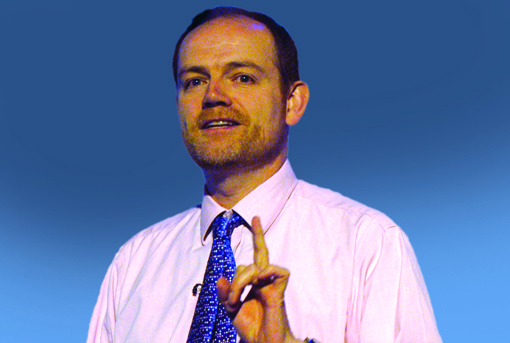
Speaking at the Royal Television's Society's Cambridge Convention, Thompson promised a "radical and open-minded" review of the BBC's future and its scope, compared with the commercial media sector.
Conceding that, in recent years, the industry had changed "beyond recognition", Thompson admitted parts of the media industry such as newspapers, who once regarded themselves as being in a different market to the BBC, "now believe themselves to be direct competitors".
He admitted: "The world has changed and so the BBC must consider how it changes too," adding that "we have to accept that to many in commercial media we seem relatively bigger and stronger than ever."
He also appeared to signal an end to significant BBC expansion. Responding to culture secretary Ben Bradshaw's claim last night that the BBC "might have reached the limits of expansion", Thompson said, "don't assume that we'll dismiss that notion out of hand".
He said that, during the past 20 years, the BBC had opted for a "both-and" strategy, which comprised maintaining existing services, as well as launching new ones.
However, he added: "In a period where not just the licence fee, but the wider public finances and the revenues available to commercial media are constrained,'both-and' must and will give way to ‘either-or'".
Despite the apparent concession to its critics and commercial rivals, Thompson delivered a robust defence of the BBC's remit and that of its regulator, the BBC Trust.
Referring to Bradshaw's criticism in his RTS speech that the Trust was not working effectively, Thompson said: "The people Ben should ask this question of is those colleagues of his in the present Cabinet who invented the BBC Trust, approved it and enshrined it in a Charter which still has well over seven more years to run."
He added: "The trouble with independent governing bodies is that they can be, well, independent. To threaten them with imminent or creeping abolition when they take a different view from you, is not in keeping with the tradition of political independence on which the whole of British public service broadcasting is based."
He also repeated the BBC's opposition to top-slicing the licence fee to fund commercial services, such as provision of regional news, as was proposed in the Government's Digital Britain report.
He said: "If you weren't aware already, and for the avoidance of doubt, the Executive and the Trust are united in opposition to top-slicing - it's bad for independence and accountability, and all international experience shows that its the start of a slippery slope."



_1.jpg)
.jpg)
